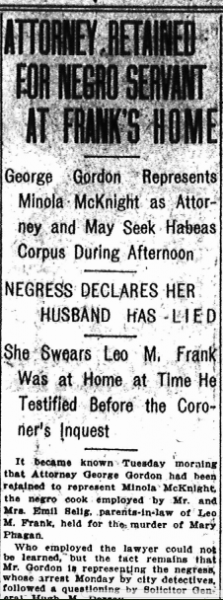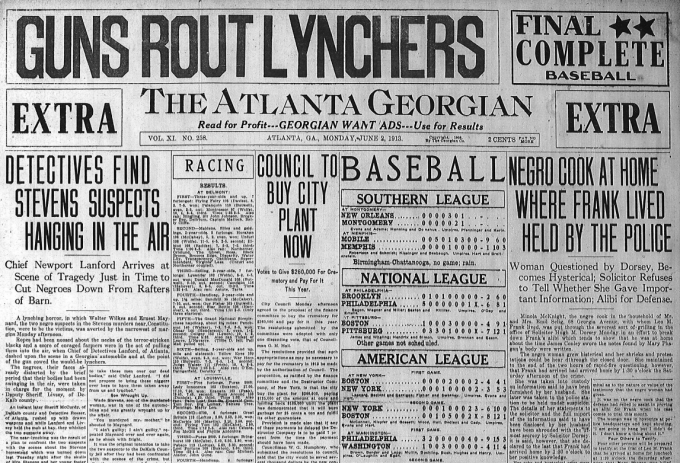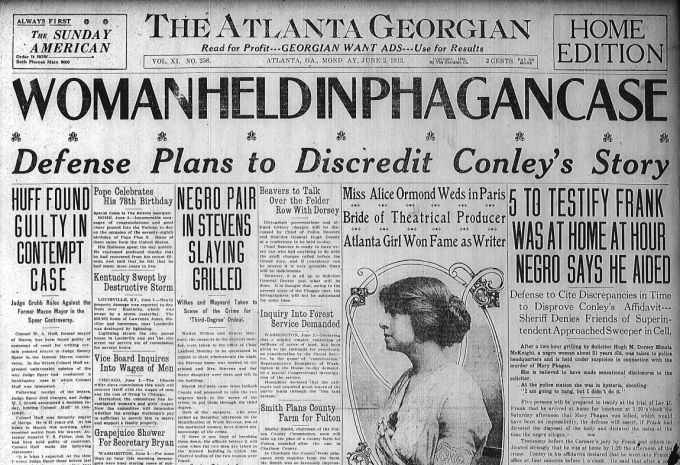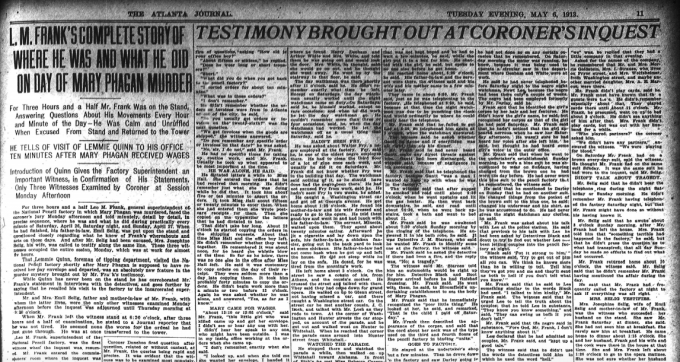Another in our series of new transcriptions of contemporary articles on the Leo Frank case.
Atlanta Constitution
August 15th, 1913
Following the testimony of those who claimed to have played poker at the Emil Selig home on the night of April 26, Mrs. Selig, Leo Frank’s mother-in-law was placed on the stand and asked a number of questions about the happenings at her house on Sunday, April 27. To most of the questions from the state on cross-examination she replied that she had forgotten.
When the witness took the stand, Attorney Arnold called on the state for the affidavit which Minola McKnight, the Selig’s cook, signed at police station and later repudiated.
“Mrs. Selig,” said Mr. Arnold, “I wanted to ask you some questions about statements in this affidavit and find out if they are true.
“Is it true that there was talk in your home about the time of the murder? Leo Frank being caught with a girl at the factory and that the negro cook asked if it was a Jew girl or a Gentile and you or Mrs. Frank said it was a Gentile?”
“It is not true, there was no such conversation that I know of.”
Mrs. Selig was almost crying at this juncture of her testimony.
Continue Reading →






